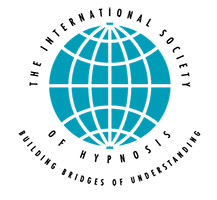
All Genders Unsatisfied Sex Life
Sexual dysfunction or sexual malfunction refers to a difficulty experienced by an individual or a couple during any stage of a normal sexual activity, including desire, arousal or orgasm.
To maximize the benefits of medications and behavioural techniques in the management of sexual dysfunction it is important to have a comprehensive approach to the problem, A thorough sexual history and assessment of general health and other sexual problems (if any) are very important. Assessing (performance) anxiety, guilt (associated with masturbation in many Indian men), stress and worry are integral to the optimal management of sexual dysfunction. When a sexual problem is managed inappropriately or sub-optimally, it is very likely that the condition will subside immediately but re-emerge after a while. When this cycle continues, it strongly reinforces failure that eventually make clients not to access any help and suffer it all their life. So, it is important to get a thorough assessment from professionals and therapists who are qualified to manage sexual problems. Internet-based information is good for gaining knowledge about sexual functioning and sexual problem but not for self-diagnosis and/or self-management.
Categories
Sexual dysfunction disorders may be classified into four categories: sexual desire disorders, arousal disorders, orgasm disorders and pain disorders.
Sexual desire disorders
Sexual desire disorders or decreased libido are characterised by a lack or absence for some period of time of sexual desire or libido for sexual activity or of sexual fantasies. The condition ranges from a general lack of sexual desire to a lack of sexual desire for the current partner. The condition may have started after a period of normal sexual functioning or the person may always have had no/low sexual desire.
The causes vary considerably, but include a possible decrease in the production of normal estrogen in women or testosterone in both men and women. Other causes may be aging, fatigue, pregnancy, medications (such as the SSRIs) or psychiatric conditions, such as depression and anxiety. Loss of libido from SSRIs usually reverses after SSRIs are discontinued, but in some cases it does not. This has been called PSSD; however, this is not a classification that would be found in any current medical text. While a number of causes for low sexual desire are often cited, only some of these have ever been the object of empirical research. Many rely entirely on the impressions of therapists.
Sexual arousal disorders
Sexual arousal disorders were previously known as frigidity in women and impotence in men, though these have now been replaced with less judgmental terms. Impotence is now known as erectile dysfunction, and frigidity has been replaced with a number of terms describing specific problems with, for example, desire or arousal.
For both men and women, these conditions can manifest themselves as an aversion to, and avoidance of, sexual contact with a partner. In men, there may be partial or complete failure to attain or maintain an erection, or a lack of sexual excitement and pleasure in sexual activity.
There may be medical causes to these disorders, such as decreased blood flow or lack of vaginal lubrication. Chronic disease can also contribute, as well as the nature of the relationship between the partners. Unlike disorders of orgasm, as the success of Viagra (sildenafil citrate) attests, most erectile disorders in men are primarily physical conditions.
Erectile dysfunction
Erectile dysfunction or impotence is a sexual dysfunction characterized by the inability to develop or maintain an erection of the penis. There are various underlying causes, such as damage to the nervi erigentes which prevents or delays erection, or diabetes , which simply decreases blood flow to the tissue in the penis, many of which are medically reversible.
, which simply decreases blood flow to the tissue in the penis, many of which are medically reversible.
The causes of erectile dysfunction may be psychological or physical. Psychological impotence can often be helped by almost anything that the patient believes in; there is a very strong placebo effect. Physical damage is much more severe. One leading physical cause of ED is continual or severe damage taken to the nervi erigentes. These nerves course beside the prostate arising from the sacral plexus and can be damaged in prostatic and colo-rectal surgeries.
Due to its embarrassing nature and the shame felt by sufferers, the subject was taboo for a long time, and is the subject of many urban legends. Folk remedies have long been advocated, with some being advertised widely since the 1930s. The introduction of perhaps the first pharmacologically effective remedy for impotence, sildenafil name Viagra), in the 1990s caused a wave of public attention, propelled in part by the news-worthiness of stories about it and heavy advertising.
The Latin term impotentia coeundi describes simple inability to insert the penis into the vagina. It is now mostly replaced by more precise terms.
Orgasm disorders
Orgasm disorders are persistent delays or absence of orgasm following a normal sexual excitement phase. The disorder can have physical, psychological, or pharmacological origins. SSRI antidepressants are a common pharmaceutical culprit, as they can delay orgasm or eliminate it entirely.
Sexual pain disorders
Sexual pain disorders affect women almost exclusively and are known as dyspareunia (painful intercourse) or vaginismus (an involuntary spasm of the muscles of the vaginal wall that interferes with intercourse).
Dyspareunia may be caused by insufficient lubrication (vaginal dryness) in women. Poor lubrication may result from insufficient excitement and stimulation, or from hormonal changes caused by menopause, pregnancy, or breast-feeding. Irritation from contraceptive creams and foams can also cause dryness, as can fear and anxiety about sex.
It is unclear exactly what causes vaginismus, but it is thought that past sexual trauma (such as rape or abuse) may play a role. Another female sexual pain disorder is called vulvodynia or vulvar vestibulitis. In this condition, women experience burning pain during sex which seems to be related to problems with the skin in the vulvar and vaginal areas. The cause is unknown.
Uncommon sexual disorders in men
Erectile dysfunction from vascular disease is usually seen only amongst elderly individuals who have atherosclerosis. Vascular disease is common in individuals who have diabetes , peripheral vascular disease, hypertension and those who smoke. Any time blood flow to the penis is impaired, erectile dysfunction is the end result.
, peripheral vascular disease, hypertension and those who smoke. Any time blood flow to the penis is impaired, erectile dysfunction is the end result.
Hormone deficiency is a relatively rare cause of erectile dysfunction. In individuals with testicular failure like klinefelter's syndrome, or those who have had radiation therapy, chemotherapy or childhood exposure to mumps virus, the testes may fail and not produce testosterone. Other hormonal causes of erectile failure include brain tumors, hyperthyroidism, hypothyroidism or disorders of the adrenal gland.
Structural abnormalities of the penis like Peyronie's disease can make sexual intercourse difficult. The disease is characterized by thick fibrous bands in the penis which leads to a deformed-looking penis.
Drugs are also a cause of erectile dysfunction. Individuals who take drugs to lower blood pressure, uses antipsychotics, antidepressants, sedatives, narcotics, antacids or alcohol can have problems with sexual function and loss of libido.
Priapism is a painful erection that occurs for several hours and occurs in the absence of sexual stimulation. This condition develops when blood gets trapped in the penis and is unable to drain out. If the condition is not promptly treated, it can lead to severe scarring and permanent loss of erectile function. The disorder occurs in young men and children. Individuals with sickle-cell disease and those who abuse certain medications can often develop this disorder.
Causes
There are many factors which may result in a person experiencing a sexual dysfunction. These may result from emotional or physical causes.
Sexual dysfunction may arise from emotional factors, including interpersonal or psychological problems. Interpersonal problems may arise from marital or relationship problems, or from a lack of trust and open communication between partners, and psychological problems may be the result of depression, sexual fears or guilt, past sexual trauma, sexual disorders, among others.
Sexual dysfunction is especially common among people who have anxiety disorders. Ordinary anxiousness can obviously cause erectile dysfunction in men without psychiatric problems, but clinically diagnosable disorders such as panic disorder commonly cause avoidance of intercourse and premature ejaculation. Pain during intercourse is often a comorbidity of anxiety disorders among women.
Sexual activity may also be impacted by physical factors. These would include use of drugs, such as alcohol, nicotine, narcotics, stimulants, antihypertensives, antihistamines, and some psychotherapeutic drugs. For women, almost any physiological change that affects the reproductive system-premenstrual syndrome, pregnancy, postpartum, menopause can have an adverse effect on libido. Injuries to the back may also impact sexual activity, as would problems with an enlarged prostate gland, problems with blood supply, nerve damage (as in spinal cord injuries).
Disease, such as diabetic neuropathy, multiple sclerosis, tumors, and, rarely, tertiary syphilis may also impact on the activity, as would failure of various organ systems (such as the heart and lungs), endocrine disorders (thyroid, pituitary, or adrenal gland problems), hormonal deficiencies (low testosterone, estrogen, or androgens), and some birth defects.
Symptoms
Psychological sexual disorders
The fourth edition of the Diagnostic and Statistical Manual of Mental Disorders lists the following psychological sexual disorders:
• Hypoactive sexual desire disorder (see also asexuality, which is not classified as a disorder)
• Bestiality
• Sexual aversion disorder (avoidance of or lack of desire for sexual intercourse)
• Female sexual arousal disorder (failure of normal lubricating arousal response)
• Male erectile disorder
• Female orgasmic disorder (see Anorgasmia)
• Male orgasmic disorder (see Anorgasmia)
• Premature ejaculation
• Dyspareunia
• Vaginismus
• Paraphilias
• PTSD due to genital mutilation or childhood sexual abuse
• Anhedonia
• Gender identity disorder
• Dysphoria
• Premenstrual syndrome
Other sexual problems
• Sexual dissatisfaction (non-specific)
• Lack of sexual desire
• Anorgasmia
• Impotence
• Sexually transmitted diseases
• Delay or absence of ejaculation, despite adequate stimulation
• Inability to control timing of ejaculation
• Inability to relax vaginal muscles enough to allow intercourse
• Inadequate vaginal lubrication preceding and during intercourse
• Burning pain on the vulva or in the vagina with contact to those areas
• Unhappiness or confusion related to sexual orientation
• Transsexual and transgender people may have sexual problems
(before or after surgery), though actually being transgendered or transsexual is not
a sexual problem in itself.
• Persistent sexual arousal syndrome
• Post SSRI Sexual Dysfunction
• Sexual addiction
• Hypersexuality
• All forms of Female genital cutting
Other related problems
• Pedophilia
• Necrophilia
• Zoophilia
• Infertility
• Paraphilia
Treatment for males
Since in many men the cause of sexual dysfunction is related to anxiety about performance, psychotherapy can help. Situational anxiety arises from an earlier bad incident or lack of experience. This anxiety often leads to development of fear towards sexual activity and avoidance. In return evading leads to a cycle of increased anxiety and desensitization of the penis. In some cases, erectile dysfunction may be due to marital disharmony. Marriage counseling sessions are recommended in this situation.
Lifestyle changes such as discontinuing smoking, drug or alcohol abuse can also help in some types of erectile dysfunction.








